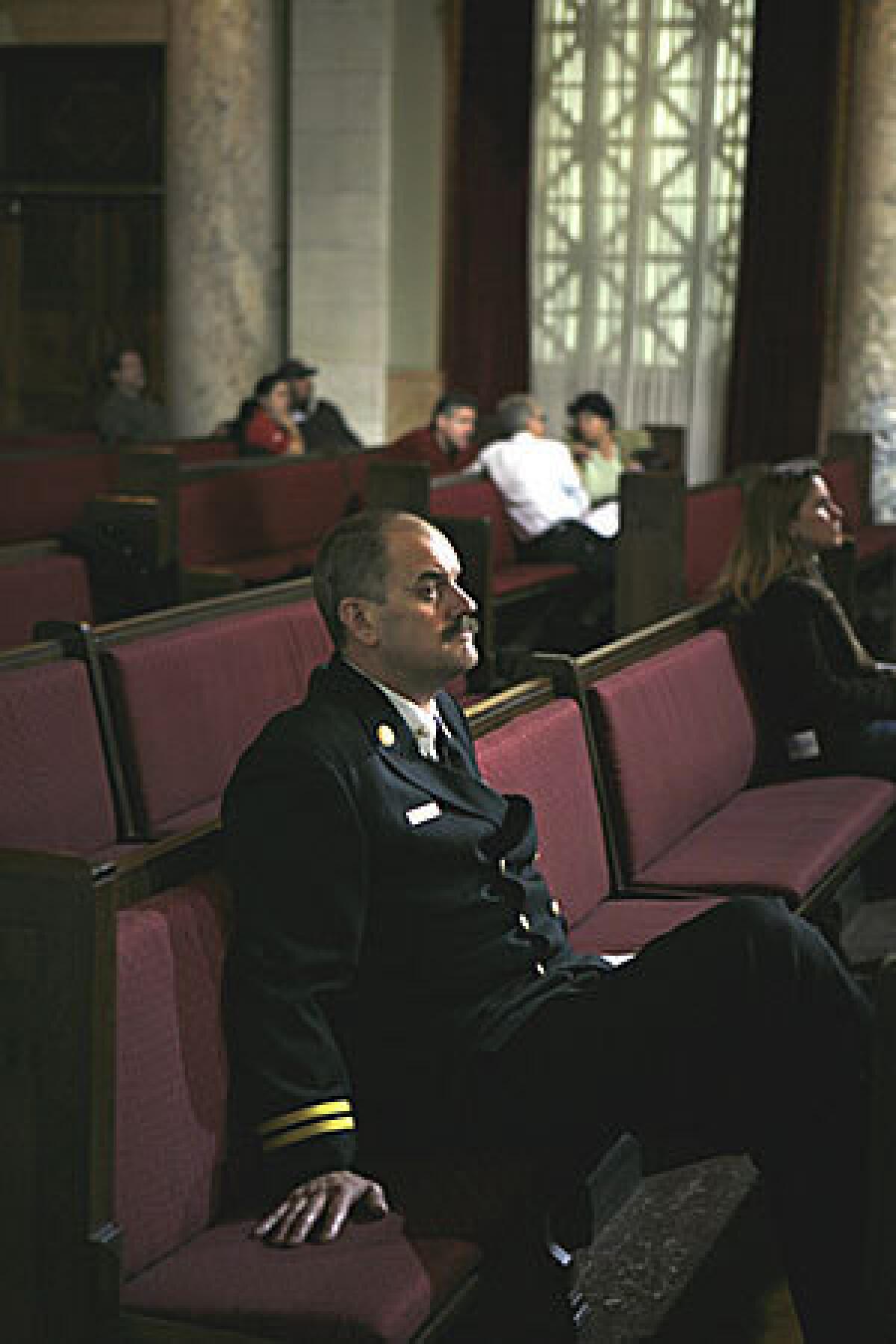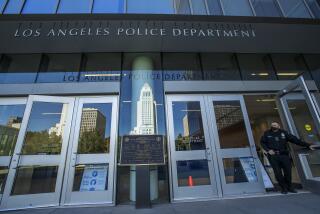L.A. Fire Department task force will examine response times

The Los Angeles Fire Department has formed a task force to help address lingering questions about how quickly units are responding to fire and rescue emergencies.
The group, which includes sworn and civilian members of the department as well as a handful of outside data experts, will work to ensure the accuracy of the department’s statistics and make sure that information is communicated clearly to the public, officials said at Tuesday’s Fire Commission meeting.
The creation of the task force comes after months of questions about the department’s performance and transparency. A recent audit by City Controller Wendy Greuel found major problems with the LAFD’s data. Greuel complained about the department’s inconsistent methodology for calculating response-time statistics, and the failure by fire officials to explain how and why they have changed how times are figured.
Fire Chief Brian Cummings has said his department is committed to implementing Greuel’s recommendations. He said the task force will help the department “refine its process for presenting clear, consistent and easily understood information regarding our response times, as well as establishing measurements and benchmarks for all that we do.”
The department said the new task force’s first challenge will be to develop rules to guide how LAFD staff analyzes the millions of records in the dispatch database.
In the past, LAFD analysts claimed to exclude “non-emergency” calls when calculating response times. But the controller’s audit found that flaws in the department’s computer systems make it impossible for that to be done reliably.
A recent LAFD memo obtained by The Times shows staff members struggling to explain the department’s own procedures.
“We need to come up with a listing of what to exclude!!!” the memo reads, in a section dedicated to spelling out which records to remove when analyzing dispatch data.
Alan Skobin, a former police commissioner who was appointed to the Fire Commission by Mayor Antonio Villaraigosa to help quell concerns over response times, said he was at the first task force meeting last week. He described it as “almost magical,” and said he is optimistic about what the panel can accomplish.
The group includes two data specialists from the Rand Corp., two engineering professors from USC and a police captain who helped implement the Los Angeles Police Department’s statistic-tracking Compstat program.
The group is headed by Pat Butler, an assistant fire chief who was a top candidate in last year’s search for a new chief. Butler was one of two candidates recommended for the job by a city panel that included Skobin and Fire Commission President Genethia Hudley-Hayes, according to a letter from the panel obtained by The Times.
Villaraigosa ultimately chose Cummings, who was not among the recommended candidates but who had helped develop the department’s plan for redeploying resources that cut costs by taking away firetrucks and ambulances at more than a fifth of the city’s fire stations.
Also on Tuesday, fire commissioners waded into a contentious debate over whether the department’s top watchdog should have access to confidential employee information.
Independent Assessor Stephen Miller complained last week that Cummings wasn’t allowing him access to the information he needed.
Cummings says that is because he has been advised by assistants to City Atty. Carmen Trutanich that Miller and the Fire Commission do not legally have the right to such information.
The commission, which has been pushing for Miller to get the access he needs, voted not to hire outside counsel to take the matter to court. But it did vote to instruct Cummings to cooperate with Miller’s investigations.
Zna Houston of the city attorney’s office said that leaves Cummings in the awkward position of having to decide whether to follow the city attorney’s advice or the commission’s.
Officials in Trutanich’s office say the City Charter does not give the independent assessor the right to confidential files. Chief Assistant City Atty. Pete Echeverria told the commission that if it wants to ensure Miller’s access to those files, it should push for a charter amendment, which would require a ballot measure.
kate.linthicum@latimes.com
Times Staff Writer Ben Welsh contributed to this report.
More to Read
Sign up for Essential California
The most important California stories and recommendations in your inbox every morning.
You may occasionally receive promotional content from the Los Angeles Times.











